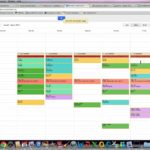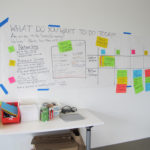Do you ever feel overwhelmed? I sure do.
 Being a parent brings a new level of chaos to your life. It’s no longer just about you, and it’s often not about you at all. I have yet to meet anyone who doesn’t at least start out as an overwhelmed parent. You have someone reliant upon you, and you can’t just let your child run off with no direction. How can you take care of yourself?
Being a parent brings a new level of chaos to your life. It’s no longer just about you, and it’s often not about you at all. I have yet to meet anyone who doesn’t at least start out as an overwhelmed parent. You have someone reliant upon you, and you can’t just let your child run off with no direction. How can you take care of yourself?
It can also to become an overwhelmed parent when you tip to the other side of the scale. You’re involved in every aspect of your child’s life – volunteering at school, helping with homework, participating in umpteen after school and weekend activities, cooking and cleaning, and there’s just not enough hours in the day. You may be piloting a helicopter, and you may not even realize it.
Then throw a chronic illness into the equation. You’re doing more with less. There’s more medicine, more health concerns, more doctors’ appointments. There’s less energy, less control, and less ability to get involved as you’d like.
You can take some control over your life, or you can turn into an overwhelmed parent. It’s a matter of focus. Since you can’t do everything, you need to focus on what’s most important to you. It’s far too easy to let the noise of the world seep into your life and take you away from what matters most to you.
How do you do it?
1. Calendars are essential.

There is no way you can keep up with everything in your head. Trying to do so increases the chances of getting THAT phone call that you’ve forgotten to pick up your child from an event. I have a 6th grader and a 5th grader – two different schools with completely different schedules. I have to maintain a calendar just to know who’s in school when!
I use Google Calendar to keep track of everything. Why?
- To create multiple calendars. Jason has a calendar, Dylan has a calendar, everyone has a calendar! One calendar can be exceptionally confusing. With multiple calendars, you can color code to know who’s doing what and when.
- To view any combination of calendars together. I have a meal planning calendar, but I don’t need to see it when I’m trying to figure out what time I need to pick up everybody. I can open just the ones I need to see what I need to see at a glance.
- To take it with me. Google calendar syncs with your phone, so you can see what’s going on while out and about.
- To update on computer or phone. I’m a lousy texter, so most of the time I update the calendar on my computer’s bigger keyboard. That way, I don’t have to figure out what “pock ip Json fom peacticr” means. It’s easier to wait and type “pick up Jason from practice.” But there are times when I get texts or voicemails that require immediate schedule changes, so I have to risk bad spelling.
- To set reminders. Why worry about looking at your phone when your phone can tell you when it’s time to go somewhere?
2. Manage your schedule.

You can’t do it all. Your kids can’t do it all. Overload the schedule, and you’ll all be dealing with too much stress. When you overcommit, you’re running around like a chicken with your head cut off, instead of getting the most out of what you do.
Too much on the schedule means that something’s got to suffer.
- Will there be enough time for homework?
- How about sleep?
- Are you getting together for proper meals?
- Does your child have time to just play?
- Do you have time to just hang out as a family and enjoy being together?
If the answer to any of those questions is NO, then it’s time to retool your schedule.
I thought I was doing a good job with managing schedules. I didn’t sign the boys up for many extracurricular activities so that they weren’t overwhelmed. Then Jason started middle school, and the workload increased dramatically.
At one point, Jason asked me if he could stop playing intramurals after school so that he could have family time at nights instead of just doing homework. I was crushed, because I thought it was important for him to have time to hang out with friends and exercise. Fortunately, he had study hall on the same days as intramurals, and he realized he could get enough homework done so that he could still play.
3. Listen to your body.
 When you’re busy, self-care can go out the window. You’re not eating healthy meals, you’re not exercising, and you’re not giving yourself a chance to just breathe. At some point, your body will break down, and it will probably happen at an inconvenient time. If you have a chronic illness, it will probably break down sooner than if you don’t, but everyone’s at risk.
When you’re busy, self-care can go out the window. You’re not eating healthy meals, you’re not exercising, and you’re not giving yourself a chance to just breathe. At some point, your body will break down, and it will probably happen at an inconvenient time. If you have a chronic illness, it will probably break down sooner than if you don’t, but everyone’s at risk.
How can you take care of others if you don’t take care of yourself? There’s a commercial that shows an adult telling someone that they need to take a sick day. The camera turns, and you see a child or a family packing for vacation while the announcer reminds you that taking a sick day isn’t always an option.
Taking time for yourself is not selfish. Recharging your batteries leaves you in better shape to take care of your other responsibilities. So here’s are a few reminders.
- Eat healthy meals. Skipping meals or grabbing whatever will drain your energy.
- Drink your water. It’s hard to do when you’re on the go. And when you have MS-related bladder issues, it’s a double-edged sword. You need to drink water, but you don’t want to have accidents. I typically keep a pair of “emergency pants” with me when i’m going to be out and about for a long period of time.
- Get enough sleep. Easier said than done. It can help to develop a bedtime routine to help you wind down and turn off your brain so you can get a good night’s sleep.
Taking care of yourself makes it easier for you to take care of the people around you. Help yourself by managing your schedule and cutting down activities when anyone gets overwhelmed. And maintain a calendar (or a system of multiple calendars) so that you can be where you’re supposed to be when you’re supposed to be there.
Don’t forget to breathe!
